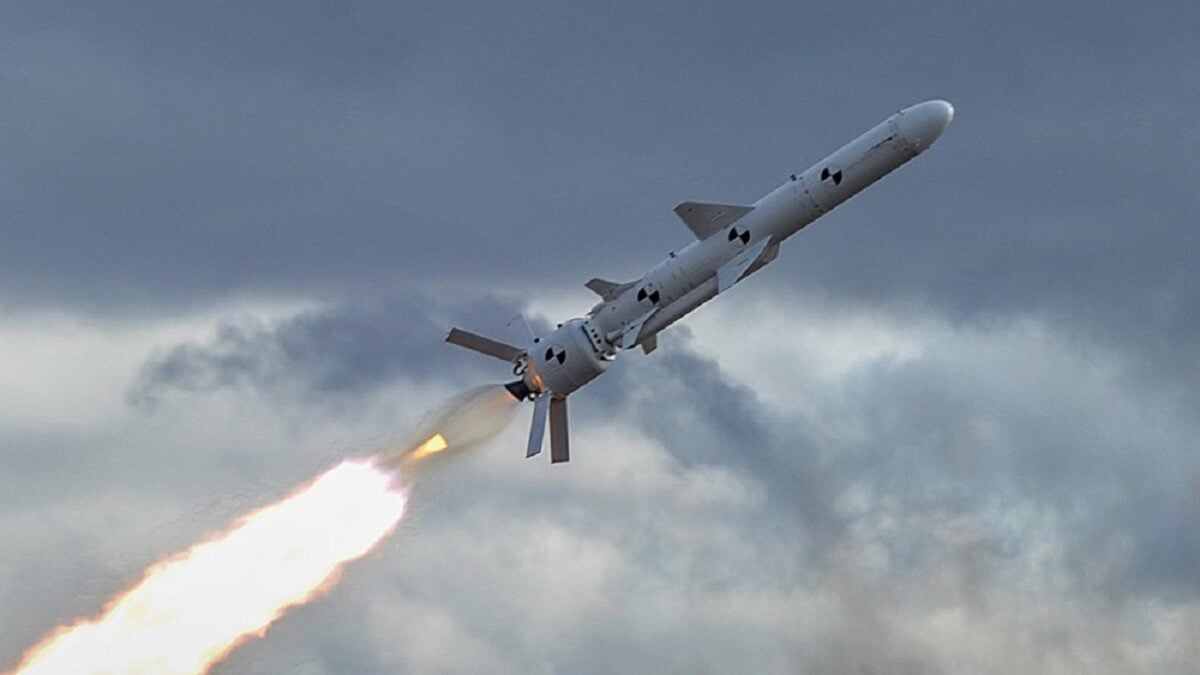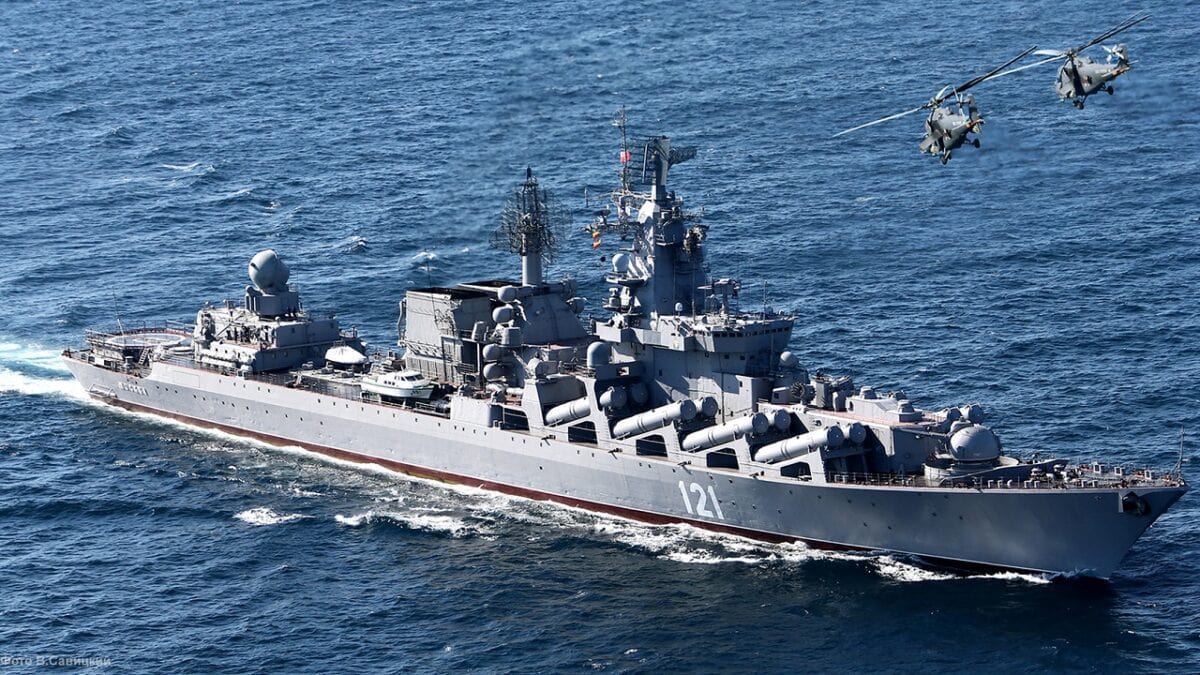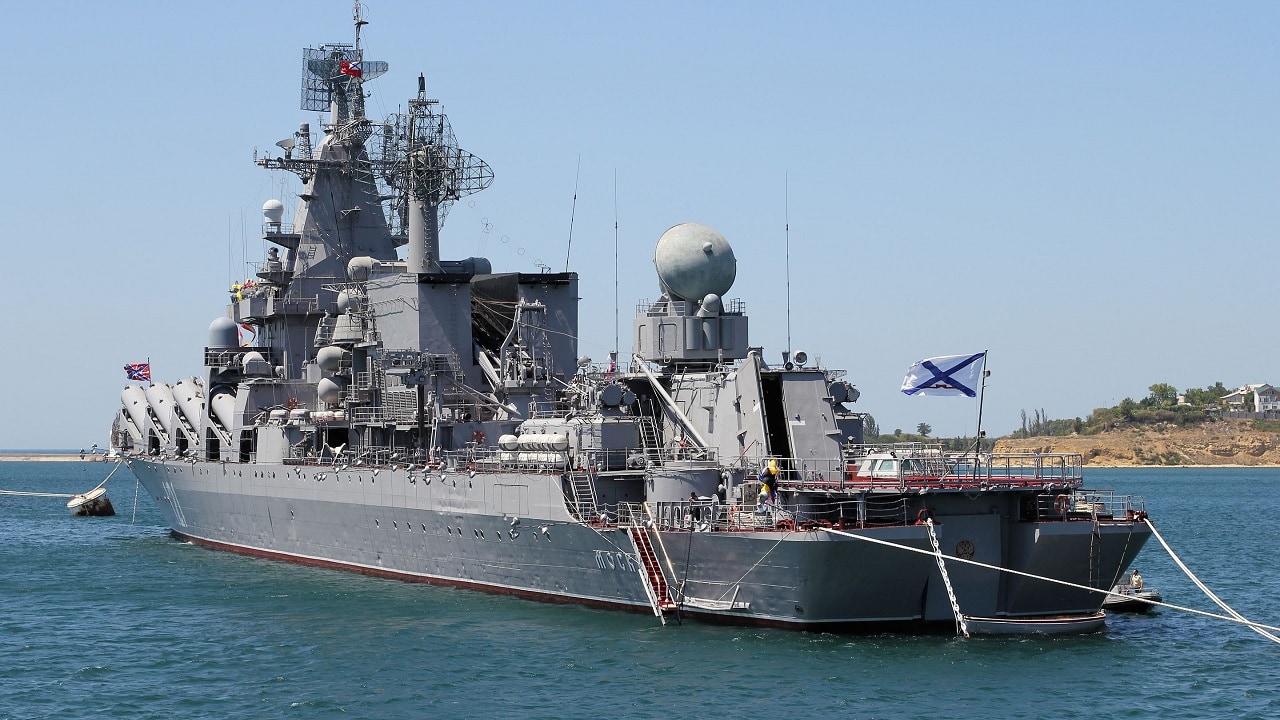What is the Moskva, the Russian Flagship Sunk By Ukraine? – Russia’s flagship cruiser in the Black Sea was destroyed by Ukrainian missiles on April 14, prompting the Kremlin to claim that the ship sank as a result of a fire that started inside of the ship. The Kremlin claims that the fire caused a munitions explosion inside the ship.
Claims that the Moskva sank as a result of the fire were criticized by the father of one missing sailor. The father told CNN that the assertion was a “blatant and cynical lie.” Other relatives of missing Moskva sailors say are also calling for answers.
According to Lithuania’s defense minister, there was 485 crew onboard board the ship, including 66 officers, at the time it was struck and began to capsize. Ukraine took credit for the sinking, describing how two Neptune anti-ship missiles were used to sink the flagship.
What’s the History of the Moskva?
The Moskva Russian cruiser was considered the country’s most powerful warship in the Black Sea.
It has been deployed in the 2014 annexation of Crimea, in Syria in 2015, and in Georgia in 2008. It was deployed in February of this year to lead the naval assault on Ukraine, but sank on April, 14, after being hit by Ukrainian Neptune missiles.
Commissioned in 1983, the Moskva started its life as the Slava. As a Slava class Soviet cruiser, first designed in the late 1960s, the ship was first intended to be a less expensive alternative to the nuclear-powered Kirov class cruisers. The Slava class cruisers quickly became the flagships for several Russian task forces.
After undergoing a refit, the ship was renamed the Moskva in 1995. After renovations, the ship was recommissioned in April of 2000. The ship has engaged in exercises in the Indian Ocean, visited the Grand Harbor of Malta in 2004, and took part in naval drills in the Mediterranean in 2008 and 2009.
At the end of 2009, the ship was fitted went undergo more major repairs and improvements, before being deployed once again to the Mediterranean Sea in 2013. The ship has spent most of its time in the Black Sea in recent years and underwent further maintenance and repairs in July of 2020 in preparation for keeping the ship in service until 2040.
The ship carried 16 Vulkan missile launchers, had a crew of 510, and was widely considered to be one of the most valuable ships in the Russian Navy.

Neptune Anti-Ship Missile. Image Credit: Creative Commons.
In 2016, the well-known cruiser was awarded the naval Order of Nakhimov in July of 2016, a military decoration of the Russian Federation typically awarded to naval officers for their military leadership.
The sinking of the ship is significant not just symbolically, but strategically. Russia no longer has its most powerful ship in the Black Sea at a time when Ukrainian fighters are increasingly using Western-supplied heavy artillery to destroy Russian military vehicles and ships. The last time a ship of this size sank was the Argentine General Belgrano cruiser that was sunk by Britain’s nuclear-powered HMS Conqueror submarine in 1982.

Moskva Cruiser. Image Credit: Creative Commons.
Jack Buckby is a British author, counter-extremism researcher, and journalist based in New York. Reporting on the U.K., Europe, and the U.S., he works to analyze and understand left-wing and right-wing radicalization, and reports on Western governments’ approaches to the pressing issues of today. His books and research papers explore these themes and propose pragmatic solutions to our increasingly polarized society.

